by Allison Lee
Disclaimer: when the word ‘men’ is mentioned in this article, it does not encompass all men, merely a certain portion of the male population. If you treat women with respect, you shouldn’t be offended by this article.
Ask any woman what she would do if men were gone for 24 hours and I guarantee the majority will want to take a walk after sundown without a strand of worry on their minds.
Just the other day, I plugged in my favorite playlist, left my house, and set out for a light run. To get to the running trail, I have to take a five-minute walk through remote alleyways and past an abandoned playground. I noticed something: when I was going through these paths, I would instinctively look over my shoulder every few steps. It then dawned on me why I kept doing so—I was afraid of being attacked, robbed, kidnapped, or worse.
Perhaps to you, this sounds silly; unfortunately, this is the reality for many women: we hold keys between knuckles while routing home after hours, we walk fast down sidewalks to avoid unsolicited catcalls, we check thrice if all entry points have been locked before sleeping, we live in fear that our male counterparts would view us as gullible and vulnerable and try to take advantage of us. Women have had to suffer too much for too long simply because men decided they were and are the superior gender.
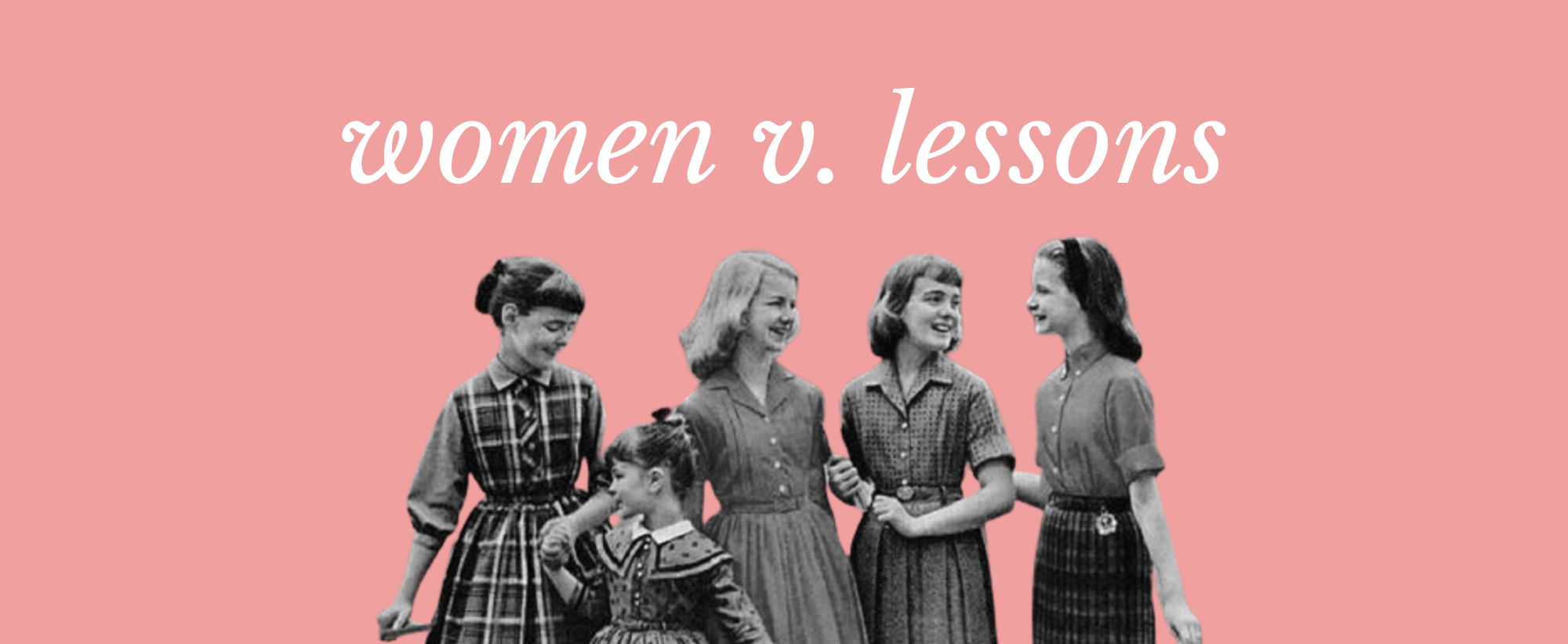
You know how it is from K-12: from dresses and braids to pink toys and ballet, from makeup and ‘girls can’t do STEM!’ to ‘ew, you’re a virgin?’ and ‘ew, she’s a slut’.
While boys’ behaviors are justified with the age-old phrase ‘boys will be boys’ and the wave of a hand, girls have a whole Christmas list worth of lessons drilled into their minds, most of which are either sexist, traditional, or downright illogical. We are taught how to sit, laugh, please, and react, trained to cook, clean, and care—“the things that a man looks for in a wife”.
Then, there is the justification of male behaviors: “Boys can ride bikes because they’re stronger and more daring”. “Boys can play in the evening because they can take care of themselves”. “Boys are only mean to you because they like you”.
The last might be the worst one of them all; by teaching your daughters this, you are equating abuse to love, which can distort their perception of love and lower their standards for receiving it.
In schools, then, there’s the issue of dress codes. While boys are allowed to wear virtually any clothes they have stowed away in their wardrobes, girls are penalized for skirts or shorts being too short, for bra straps showing (you know we are wearing one, what’s so surprising?), for cropped tops revealing midriffs, and for spaghetti straps showing shoulders. Some schools even have a vendetta against yoga pants.
Help me and all the girls understand how our stomachs and legs are ‘distracting’; if you can’t come up with a sound explanation for asking girls to cover up parts of their body that every human has, perhaps it’s time to educate your sons about respecting a girl’s body; if a girl’s shoulders are distracting the boys from proper education, perhaps education is going awry.
You get the point; girls have to learn more than boys do and are also more restricted in what’s allowed. Since these are learned behaviors, we can well conclude that gender inequality and sexism isn’t something people are born with, it is simply taught, like all injustices are.
Our values and beliefs are most malleable during school years; by continuously reinforcing sexist ideas and traditional thoughts into both genders, society is only creating a future problem—one that the Pythagorean theorem can’t solve.
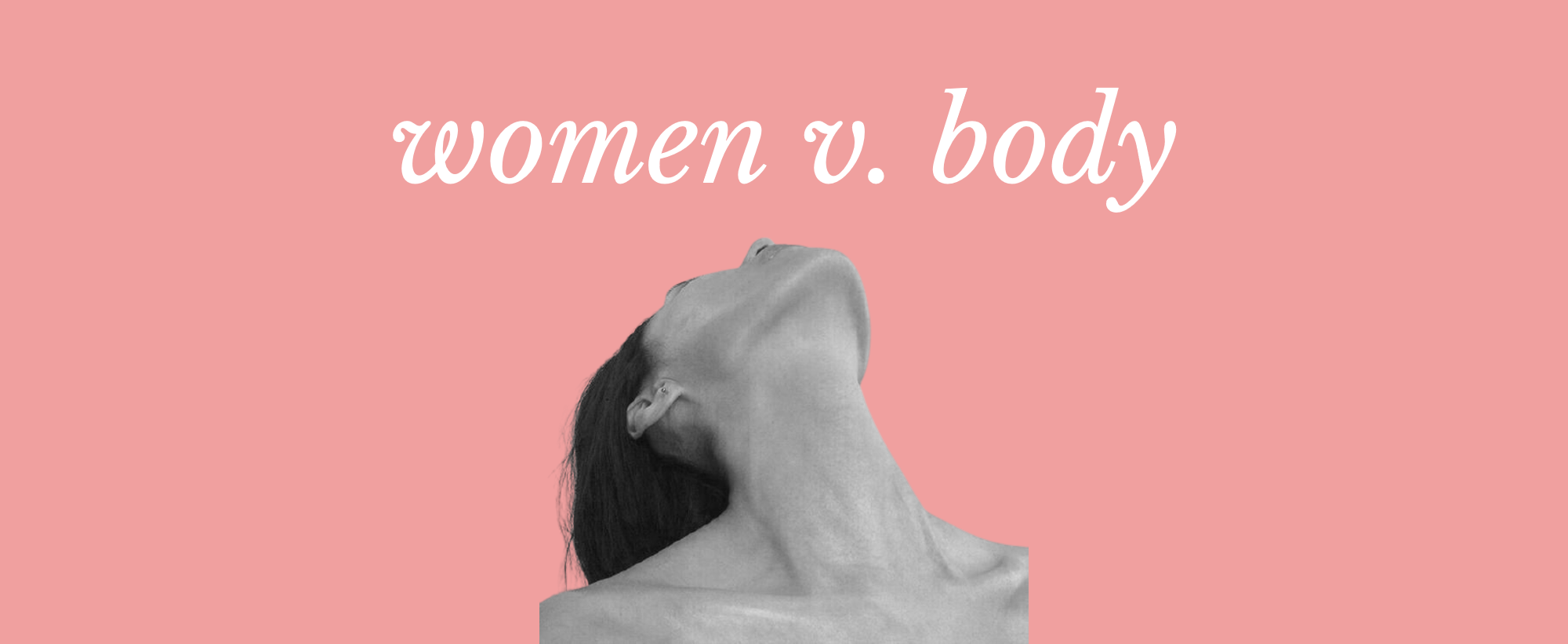
Ah, shaming. Men’s favorite pastime, as if a woman’s confidence is a game of Whack-A-Mole that they simply have to win.
When it comes to a woman’s body, men are of the opinion that they are entitled to all things, one of which is comments. With the unrealistic, air-brushed standards that the fashion and modeling industry has set for the world, the struggle with body image has become more prevalent than ever.
Imagine a little voice in your head constantly jabbing at your appearance, telling you you don’t compare to your friends or the people in magazines—that is damaging enough. Now, multiply that voice, because that’s the reality for a lot of women.
Men are constantly criticizing and asking too much of women’s bodies. With the internet, this has become an easier task for them to check off their to-do lists. One can simply set up an account and go around telling others that their hips are too wide, their thighs are too thick, or their faces are too bloated. And for many young girls on social media, the comments can be endless, chipping off at their self-esteem.
Retaliating those men’s opinions, female influencers are doing excellently at demolishing body image standards. A TikTok star who goes by the username xobrooklynne has uploaded videos of herself in a crop top, dancing to pop songs while her confidence radiates through. A part of her comment section is always taken up by haters who tell her that crop tops aren’t meant for girls of her body type, yet she thrives on and shakes those haters off, sending a positive message to her audience.
Jameela Jamil, an activist and actress, started a movement called I-Weigh to ‘create a safe and radically inclusive space on social media’. She invites guests onto her podcast where they discuss ranging topics, the most well-known ones about body image. Jamil brings out her own struggles, which provides solace for her listeners in knowing that they’re not alone. She also explores other values and assets that we, as humans, have that might be more important than our bodies and face. “I don’t ever really feel beautiful. Also, I’m not interested in feeling beautiful,” she commented, “I just like feeling like myself.”
The fashion and modeling industry, whose glasshouses have been broken by the media’s stones, have sought to employ models of all skin colors and body sizes, with Rihanna’s Savage X Fenty collection choosing to feature plus-size models, breaking barriers left and right. It is this kind of breakthrough that we need more of, not men trying to degrade women who don’t fit their fantasy mockups.
At the end of the day, if someone chooses to drag you down purely because of your looks, it says more about their character than it does about your beauty. So, chin up—queens don’t lose their crowns to the words of a clown.
Riding on the train of shaming, next stop, Body Count City—not the number of lives that Jeffrey Dahmer took—the number of people someone has had intercourse with.
The fact that men love to compare and praise each other’s body counts while stigmatizing women for ‘sleeping around’ is no longer surprising. The culture of slut-shaming runs especially rampant on university grounds, a time where most young adults explore their sexuality aside from burning the midnight oil as a result of procrastination.
Men are regarded as gods the higher their body count rises, a habit that regards women as mere trophies to be conquered and implying that once won over, they lose value. Women, on the other hand, can choose to be confident and sexually active only to be branded as ‘whores’ and ‘sluts’.
The double standard is absolutely appalling, but that’s not where things end: men will even go to great lengths to come up with excuses to shame women every chance they get. Did you know that “the vagina becomes loose after having lots of sex” is a myth started by men?
Revisiting the idea of university culture, young women are also shamed for not having lost their virginities upon entering university—as if being inexperienced makes them undesirable. Of course, this is very circumstantial and doesn’t happen to every young woman, but we cannot turn a blind eye to those who have experienced this oppression.
Sex really isn’t that big of a deal. Whether someone chooses to do it or not is none of our business. Whether they choose to do it frequently or not isn’t our place to stick our noses either.
While we are on the topic of men telling women what they can or cannot do with their bodies, we have to talk about abortion.
In the beginning, abortion was ruled illegal unless the mother’s life was in danger. The landmark case Roe v. Wade, however, prompted everyone to give the medical procedure a second thought. The Supreme Court case ended with the country protecting a pregnant woman’s right to abortion without government restriction; in spite of that, many states still pushed for an anti-abortion law, claiming that the fetus is an innocent life that shouldn’t be ended.
Here’s the thing: those who are pro-life will not care at all when the baby is actually born. Are pro-life advocates trying to improve childcare? Are they making strides in primary education? Are they seeking ways to provide sufficient nutrients and clean water for all kids? ICE is still separating children from their parents and countless refugee families are held at borders, prohibited from entering the United States, and living in ghastly conditions. Don’t try to pass yourself off as pro-life when you are merely pro-birth.
Men trying to outlaw abortion and telling women what to do with their bodies is selfish and foolish. Many women choose abortion due to health complications. Sometimes, it’s when they know they are physically, emotionally, or financially incapable of raising a child once it’s born. Every woman has her own reason and justification for getting an abortion; it is a serious procedure that must be given a lot of thought, so if they go through with it, they know that it’s the best choice for them. According to Healthline, 99% of women feel relief after an abortion instead of regret.
Being against abortion sets women back to the 1950s, a decade that headlined bad news for all suppressed groups while the rich, white men sat atop a hill of dollar bills puffing cigars and chugging alcohol. If it’s not your body, you simply don’t get to tell it what to do.
The final subtopic under ‘Women v. Body’ is, naturally, the topic of rape and consent. This is covered in more detail and depth in the very next article which you should stick around for.
Dear men, if you don’t have anything nice to say, don’t say anything at all. Dear women, your body is yours and yours only; do what you want with it and know that you look perfect in every way.

Now, let’s take a moment to look at how the law oppresses women. Existent laws have been in effect for decades, if not centuries. Back then, the majority of judges, politicians, and lawmakers were men because they claimed to be the more logical-thinking, rational-acting gender.
Since laws are difficult—but not impossible—to overturn, many discriminatory and oppressive ones still reign over countries. The team here at GIS has ventured through the depths of the internet to recover mind-boggling facts and statistics as below:
In 7 U.S. States, rapists can fight for child custody.
In 6 countries, abortion is still marked as illegal.
In 19 countries, married women are required by law to obey their husbands.
In 17 countries, there are restrictions on married women traveling outside their homes.
In 31 countries, married women lose the right to choose where to live.
In Jordan, men can get away with murdering women with the justification of ‘honor killing’.
In Sudan, girls can get married or arranged to be married from the age of ten.
In Iran, wives are not permitted to travel unless they have their husband’s approval.
In Russia, domestic violence cannot be classified as a crime.
In India, husbands are not punished for raping their wives.
In areas such as decision making and value of lives, men have the upper hand enabled by laws written by men. This self-feeding system grows like a monster whose hunger can never cease and will ultimately seek to destroy those under its feet.
These are just a few of the many laws telling women what they can or cannot do; most laws still have women surrender their right to choice and free will once they are united in bonds of matrimony, such suppression stemming from the idea that women are homemakers and submissive, that they exist to stroke the male ego and make lamb for dinner.
Well, “Lamb To The Slaughter” by Roald Dahl is a prevailing literary masterpiece, is it not?
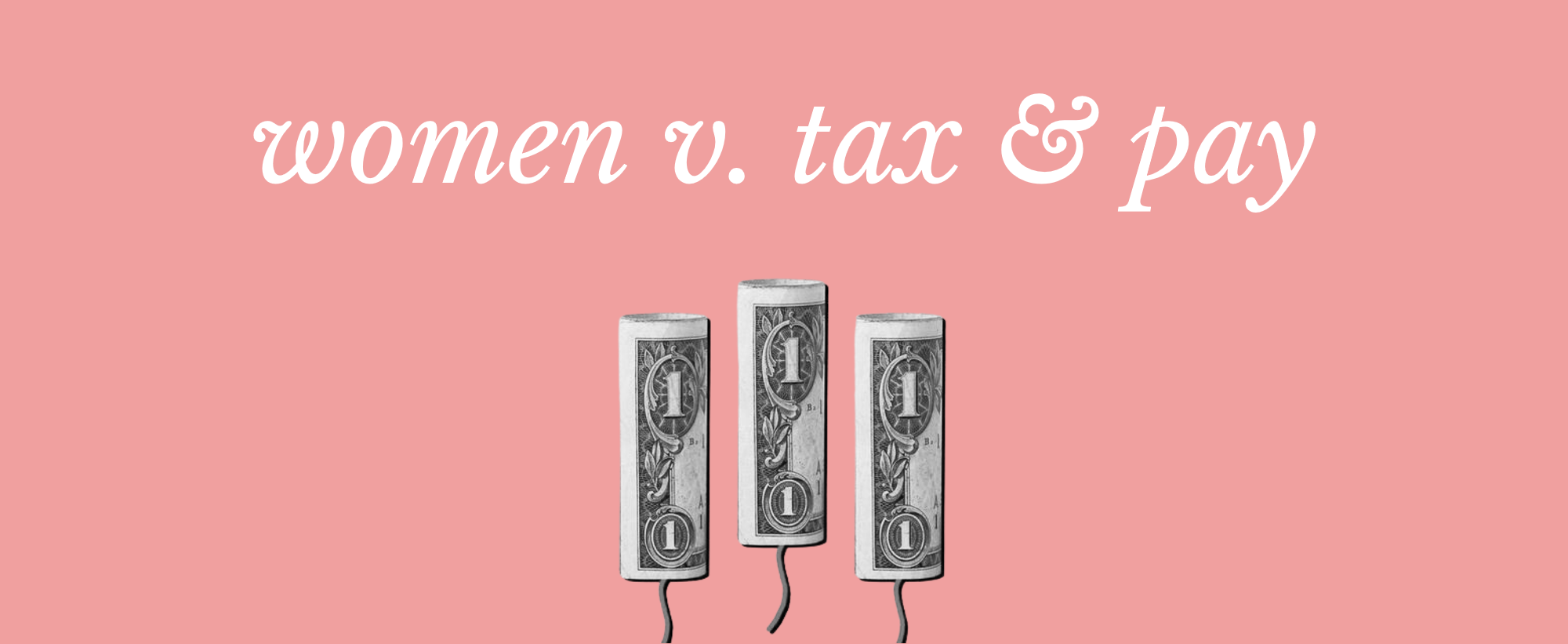
When you were birthed at the hospital, nobody told you that one gender would be more expensive than the other, and that same gender would also earn less than the other.
The ‘Pink Tax’ isn’t a legitimate tax; it is the additional cost of being a woman. In marketing, this is known as ‘gender-specific pricing’, the name of which is plain discriminatory.
The motivation behind the Pink Tax is easy to decipher; capitalism edicts that if you can make money off something, you should. The reason why the Pink Tax slips past our notice so cleverly is that statistically, women are more prone to spending than men are. Marketers seeking to maximize profit jumped at the opportunity to exploit women by increasing the disparity between male and female product prices, and let’s be honest—when are marketers ever not looking to stuff their wallets?
A study conducted by the New York City Department of Consumer Affairs revealed that marketers price women’s products at an average 7% higher than the equivalent of men’s products, the highest discrepancy falling in the category of personal care, the gap a staggering 13% (108% more on razors of a different color, 48% more for shampoo of a different scent, etc.). Heck, Viagra is exempted from tax, but menstrual products aren’t?
While a 7% increase might appear insignificant, it adds up to women paying an average of $1,351 more than their male counterparts annually. Although the report was made and surveyed in the United States, this trend can be spotted in any country.
The tax doesn’t only affect women who are financially independent; if you walk into a toy store and pick out helmets for a young girl and boy respectively, don’t be surprised to see that the price tag on the pink helmet will be relatively higher than the tag on the blue.
The Pink Tax, however, isn’t only limited to goods. More thorough experiments and studies found that women are often subjected to higher prices when it comes to services such as insurance, hair cuts, dry cleaning, and even car washes.
Of course, there is the explanation that women’s products are much pricier to be imported (such as clothing and accessories) and are thus priced higher than that of men’s, but when you compare the extra amount women are forced to spend and the gap between her pay and a man’s, something doesn’t add up.
Onto the topic of gender pay gap. The best way to wrap your head around this economic phenomenon, I’ve found, is through this infographic created by the American Association of University Women (AAUW):
Countries all around the world have worked toward illegalizing pay discrimination over half a century ago, but the existing gaps still continue to inflict harm on women and nations’ economies alike. This gap isn’t just about women having less money to spend on luxury items; it’s about it being harder for women to afford proper healthcare, pay off student loans and mortgages, and save up enough to retire. The worst part is that the older women age, the lesser of a dollar they make. Link this to retirement, women only have 70% worth of a man’s retirement income at the end of the day.
Since more young adults are pursuing tertiary education and working for lucrative jobs, it’s easy to think that the gender pay gap is closing. That is, however, far from the truth; in fact, the more higher-paying the profession, the larger the gap.
AAUW’s analysis found that for physicians and surgeons, there is a 29% gap, whereas, for financial managers, there is a 35% gap. And the profession in which the Notorious RBG worked in? A 24% gap.
Those are the statistics for the United States. Look at the infographic again and imagine what the reality is like for developing countries or women of color. There is no sugarcoating the fact that sexism embedded in society has stunted the closing of the pay gap. It’s really not difficult to compensate employees based on merit instead of gender.
One of the key reasons why men refuse to pay women equally is because they’re afraid that doing so will hurt their financial statuses. With skyrocketing numbers of women playing the role of breadwinner in households or preferring to stay unmarried, not granting gender pay equity hurts everybody. To quote Kimberly Churches, who wrote an article on this topic for AAUW, “the gender wage gap hurts everyone: kids, families, communities, and society as a whole”.
I can’t deny that countries are trying their best to eradicate the Pink Tax and pay gaps, but we’re not doing the work quickly enough. The World Economic Forum reported that gender pay gaps will take another 107 years before they are completely closed around the world, which means all the women you know while reading this will have to keep enduring this unfair treatment when it comes to finances until they are six feet under.
And let’s not even talk about how costly funerals are.
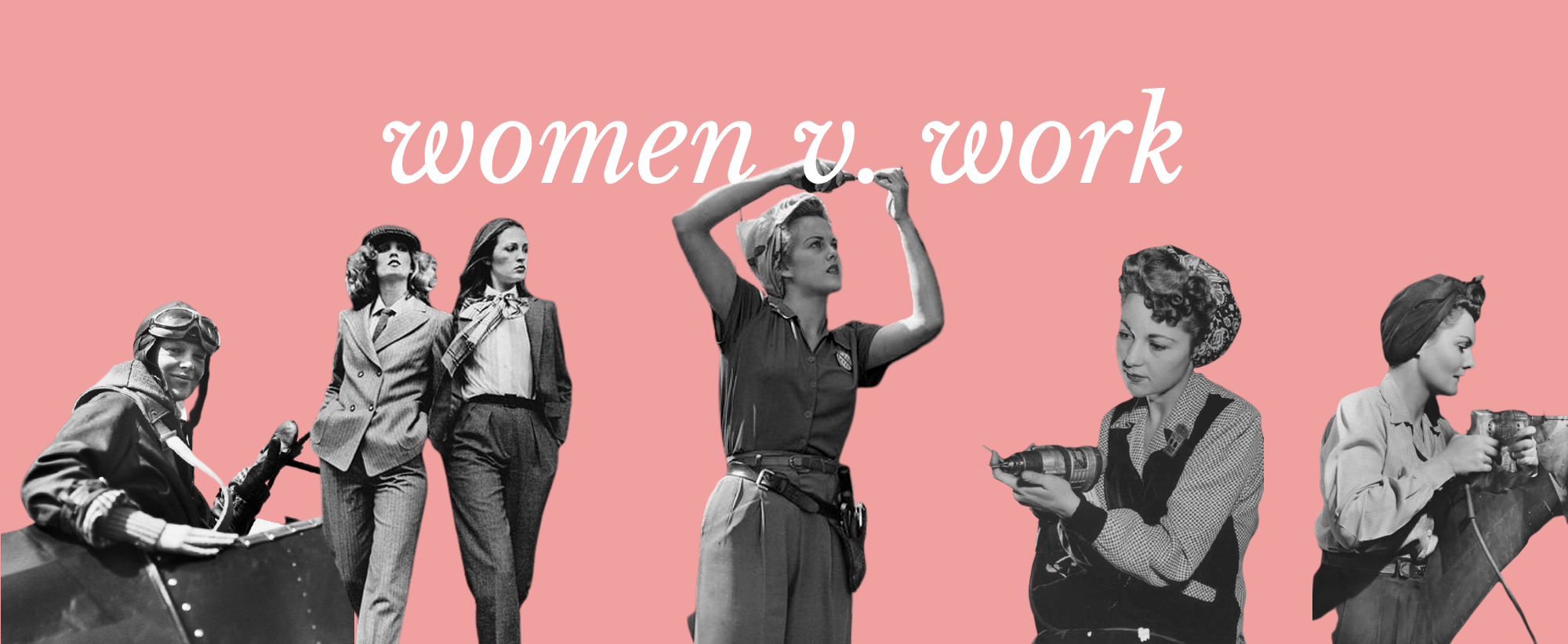
If you’ve stopped by our last issue, you would have come across the great legacy of late Supreme Court Justice Ruth Bader Ginsburg. Upon getting her law degree through both Harvard and Columbia Law Schools and tying for top of her class, she failed to secure a job in the legalverse as an aspiring lawyer in 1960s New York.
Ginsburg was turned down on three grounds: she was a woman, a mother, and a Jew; let’s focus on the first two.
The workplace is the prime hotbed for perpetuating unfair gender roles; women are regarded to be less capable than men in areas of logic and reasoning, the (utterly ridiculous) supporting points being women let their emotions get the best of them and cloud their judgments, therefore eliminating them as ideal leaders in politics, business, and academia. Furthermore, there is also the wrongful assumption that a woman’s attention will be divided and occupied by housework and her kid(s), which will lead to a derailment of her performance, thus fueling gender gate-keeping.
Before the World Wars of the 20th century, women were often confined to their own homes, being matched with activities such as cooking, cleaning, gardening, and what I would assume to be book club meetings. Women have always been viewed as the more caring gender, which at the time justified putting them in positions as caretakers and homemakers and nothing more.
It wasn’t until the Wars when men were squeezed in battlefield sardine cans that women were given more responsibilities to take on—someone had to balance the accounts, handle the books, sew the seams, and bandage the soldiers. But even then, women were only distributed to work menial jobs with unfair compensation.
When women were finally employed in fields that were largely dominated by men, they still faced oppression masked in multiple forms. It could be that women aren’t granted enough seats at the table, are only distributed humdrum tasks, or their opinions are swiftly rejected by men who refuse to give it more thought.
University of Iowa STEM student Claire McDonnell uploaded a TikTok video of her engaged in a discussion with her peers. In a class of 64, Claire is one of four women who are pursuing the course. When she tried to insert her opinions in the video, she was interjected by her male peers again and again. Judging from the voices, you could tell that it wasn’t just one man who kept interrupting her speech, it was multiple; Claire would jump at a small silence to say something, only to be cut off three words later. It is upsetting that this practice is still commonplace, especially after women in STEM have proven to perform just as well as men, if not better.
Society’s argument for keeping women at home and away from businesses has always been the difference in operation between men and women. It is often said that men can react while women can only overreact, that men have laser-focus whereas women will always be preoccupied. This plays into the sexist trope that all women are dramatic and over-the-top when in reality, some of the most important decisions and inventions have been made by women. The dishwasher, fire escape, medical syringe, central heating, caller ID, and wireless transmission technology—the mother of modern WiFi—were all brainchilds of women.

Right: Katie Bouman with data that got U.S. to the black hole (2019)
Many men will argue that women should be grateful for the lack of workload, that while he is slaving away at some corporate desk job, it is to support the family and her spending habits while she lounges at home sipping tea with the neighbors and dilly-dallying around.
If women really loved staying at home so much, do you think one of them would’ve invented the dishwasher?
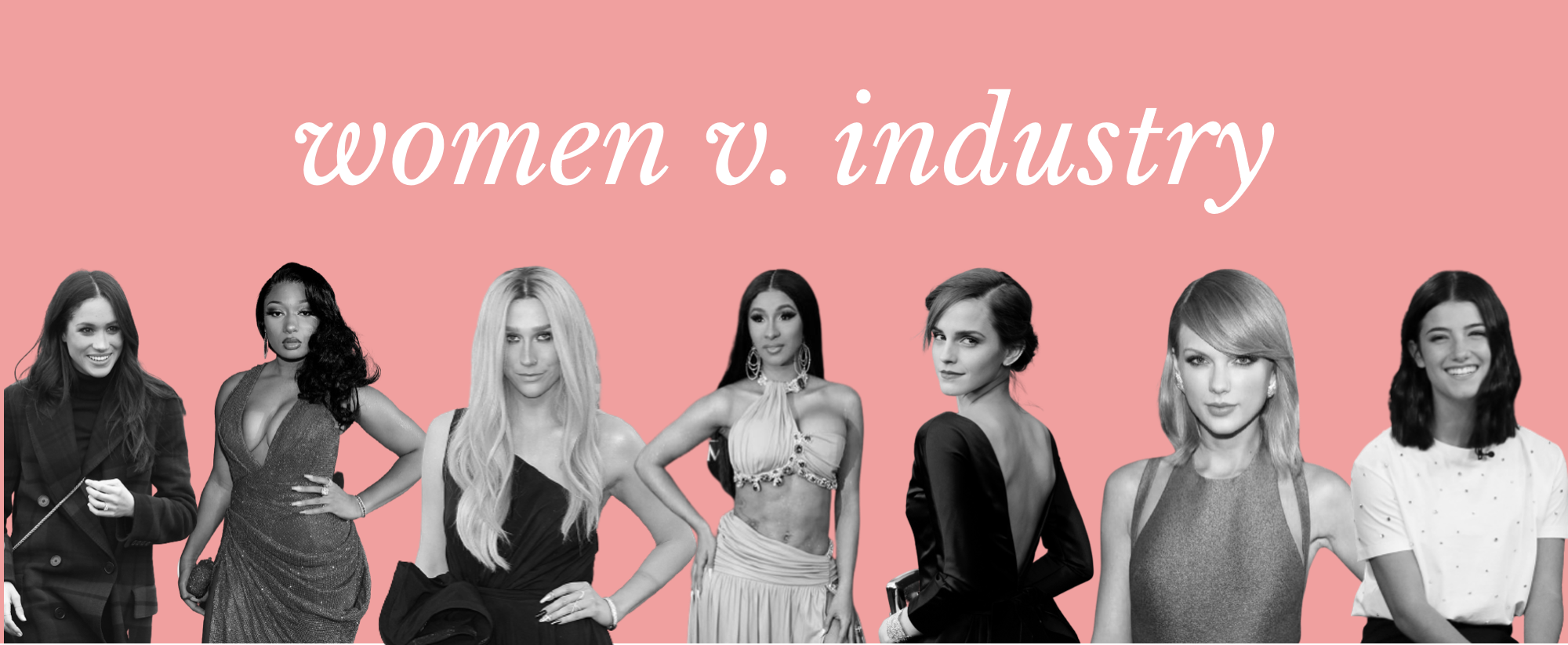
While the industry might be a subcategory of work, I want to zoom in on the entertainment industry. This is the sweet spot where people degrade female artists ruthlessly, plunging their careers into unrecoverable pitfalls and tarnishing their work and name.
Here are some examples:
Taylor Swift is constantly demonized for ‘only writing about her romantic relationships’ and the media has since constructed her entire image around that one point. The singer-songwriter has tackled this issue in a past interview, saying: “Frankly, I think that’s a very sexist angle to take. No one says that about Ed Sheeran. No one says that about Bruno Mars. They’re all writing songs about their exes, their current girlfriends, their love life, and no one raises a red flag there.”
When WAP was released, it was immediately met with backlash complaining the song is too explicit, with haters insisting that women should not talk publicly about their sexual wants and needs, much less put it in a song. In fact, political commentator Ben Shapiro took it upon himself to review the song, in which he took the lyrics literally and concluded that women who need “a bucket and a mop” might be suffering from vaginal conditions, insinuating that it isn’t normal. When you look at the colossal amount of male artists who have released records and tracks detailing their sexual encounters, demeaning and shaming women, and who have all gotten no chastisement and instead were praised for their ‘work of art’, doesn’t it just scream hypocrisy?
Harry Potter star Emma Watson, a strong feminist and advocate for gender equality left her 18th birthday to a pavement full of photographers who were lying down to take photos up her skirt. “If they had published the photographs 24 hours earlier they would have been illegal, but because I had just turned 18, they were legal.”
The court case between Kesha and her executive producer Dr. Luke was another event that took the entertainment world by storm back in 2014. The singer filed a suit to void her contracts with Dr. Luke, claiming that he had “sexually, physically, verbally, and emotionally” abused her during the years of their contract. We hear about this kind of news all the time; a female artist finally breaks through to the top only to be controlled by others, her creativity locked and freedom caged. Yet, part of the media insisted that Kesha was fabricating the truth, that it wasn’t as terrible as it sounded. They refused to heed the pleads of a woman who claimed she was treated unfairly and instead, sided with the man in the case—does that raise any flags?
There are so many more examples that I wish I had the time and capacity to go into: Meghan Markle, former actress and the Duchess of Sussex, has been on the receiving end of snide comments from the media for ‘not acting royal enough’ or for ‘plotting to dump the Prince’; Mia Khalifa was slut-shamed for working in an industry she was manipulated into; Charli D’Amelio has received immense hate because of her quick rise to fame on TikTok even when she is just a sixteen-year-old filming dance videos; Jojo Siwa, who has made it a point to create content that brings joy to her viewers, has been slammed for not acting her age; Caroline Flack was vilified by the media to the point where she ended her own life.
The list goes on. Women of all color, race, sexuality, and age are being treated unfairly and even more so when they make a name for themselves doing what they love and are talented at.
But you don’t see that kind of news about men.
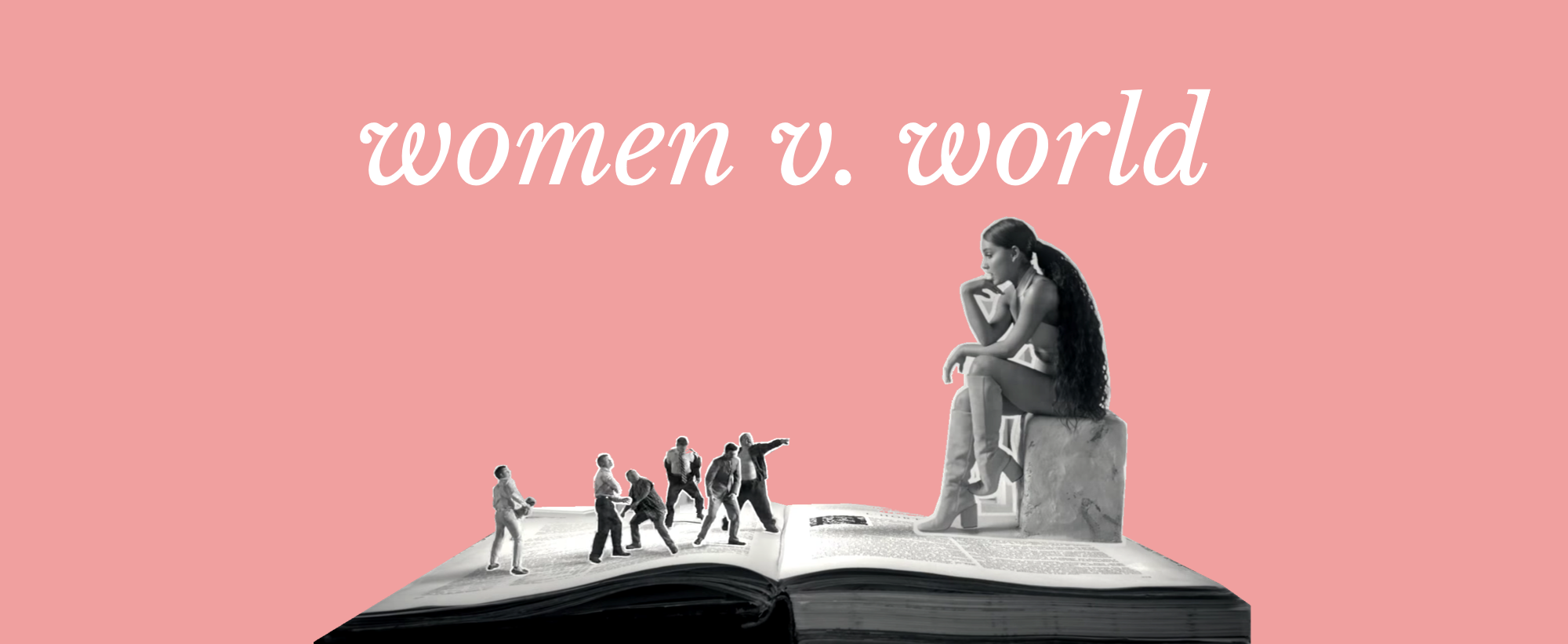
When it comes to being a woman, oppression and discrimination can be found lurking in all places, no matter the size or pressure of it. Take university campuses for example; many students have pushed for campuses to give out free condoms in the restrooms so safe-sex can be carried out. While I am all for sex positivity, isn’t it weird that schools are willing to implement free condoms but not free pads and tampons? Sex is a choice. Menstruation is not.
There are big issues where sexism isn’t hidden, much like China’s one-child policy where boys are prized above girls to secure family finances and advance the country. In certain parts of China, the ratio of girls to boys is as low as 3:10.
Or the much smaller things that nobody recognizes as sexist undertones: mothers staying up day and night to take care of their children’s every need without asking anything in return, only for onlookers to say childcare is ‘part of being a woman’, whereas a father who takes his kids out for ice cream on a Sunday afternoon gets applauded and crowned ‘Dad of The Year’.
The reason why men feel entitled to shun women, limit women’s opportunities, entitle themselves to comment on women’s bodies, and degrade women when they feel like it can be attributed to the patriarchy.
Patriarchy doesn’t uphold itself without reason; the idea of it has been around since the beginning of civilization. Purely based on statistics, most men who end up against feminism or gender equality today are older generations or those from more conservative countries and areas. I wouldn’t be too far off to speculate that it has to do with these clusters being taught outdated beliefs that their community has grown too comfortable in.
The psychological explanation behind the theory of conformity plays into this perfectly: if everyone around you believes Z to be true, you’re more likely to follow suit than to randomly rise up as an outlier and challenge Z. Z then becomes so strongly consolidated within your person that it becomes a part of your character, leading to you unknowingly repeating the process to those in your immediate surroundings.
It’s a systemic problem that requires mountainous efforts to overcome, so some politicians such as Tr*mp and N*jib try to play this card to their advantage, appealing to sticking with traditions, and ‘brainwashing’ their supporters to fit their political statistics.
I’m not saying men have it easy all the time nor am I dismissing male struggles and difficulties. This article has been an effort to point out that men have it easier because scales of the societal system and constructs have always tipped in their favor. Women have had to fight for things that have simply fallen into a man’s open arms.
At the end of the day, there will be men who insist that feminists only want to switch roles and empower each other so that women can rise above men. All I have to say is: You have just admitted that gender inequality and power imbalance exists and you don’t want to solve it. Checkmate.
From allowing women to drive and granting them opportunities outside of the household, from granting the female vote to sending women to space, we have come a very long and tiring way to fight for the most basic respect any human can command. Yet, disappointing as it is, the fight is not over. We have so much work to get done before there is virtually no distinction in the respect, treatments, and opportunities granted to a man and a woman in society.
That is a future that cannot be achieved single-handedly by women; after all, you can’t clap with one hand. Transforming traditional thinking and habits is a hefty task easier said than done, but we have to try. You wouldn’t bench half the team in a game of basketball, so why would you bench half of the world?
And so ladies and gentlemen, allow me to conclude this article the only way it deserves to be concluded—quoting a verse from 2Pac’s Keep Ya Head Up.
“And since we all came from a woman
Got our name from a woman and our game from a woman
I wonder why we take from our women
Why we rape our women, do we hate our women?
I think it’s time to kill for our women
Time to heal our women, be real to our women
And if we don’t, we’ll have a race of babies
That will hate the ladies that make the babies
And since a man can’t make one
He has no right to tell a woman when and where to create one
So will the real men get up?
I know you’re fed up, ladies, but keep ya head up”